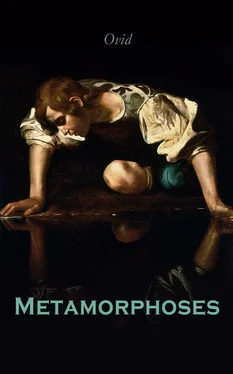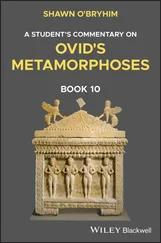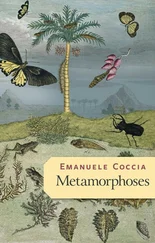36 Olympus. ]—Ver. 154. Olympus was a mountain between Thessaly and Macedonia. Pelion was a mountain of Thessaly, towards the Pelasgic gulf; and Ossa was a mountain between Olympus and Pelion. These the Giants are said to have heaped one on another, in order to scale heaven.
37 There is a way on high. ]—Ver. 168. The Poet here gives a description of the court of heaven; and supposing the galaxy, or Milky Way, to be the great road to the palace of Jupiter, places the habitations of the Gods on each side of it, and adjoining the palace itself. The mythologists also invented a story, that the Milky Way was a track left in the heavens by the milk of Juno flowing from the mouth of Hercules, when suckled by her. Aristotle, however, suspected what has been since confirmed by the investigations of modern science, that it was formed by the light of innumerable stars.
38 The ennobled Deities. ]—Ver. 172. These were the superior Deities, who formed the privy councillors of Jupiter, and were called ‘Di majorum gentium,’ or, ‘Di consentes.’ Reckoning Jupiter as one, they were twelve in number, and are enumerated by Ennius in two limping hexameter lines:—
‘Juno, Vesta, Minerva, Ceres, Diana, Venus, Mars,
Mercurius, Jovis, Neptunus, Vulcanus, Apollo.’
39 The Gods of lower rank. ]—Ver. 173. These were the ‘Dii minorum gentium,’ or inferior Deities.
40 Shook the awful locks. ]—Ver. 179. This awful nod of Jupiter, the sanction by which he confirms his decrees, is an idea taken from Homer; by whom it is so vividly depicted at the end of the first book of the Iliad, that Phidias, in his statue of that God, admired for the awful majesty of its looks, is said to have derived his conception of the features from that description. Virgil has the same idea in the Æneid, book x; ‘Annuit, et totum metu tremefecit Olympum.’
41 Nereus. ]—Ver. 187. He was one of the most ancient of the Deities of the sea, and was the son of Oceanus and Tethys.
42 The Nymphs. ]—Ver. 192. The terrestrial Nymphs were the Dryads and Hamadryads, who haunting the woods, and the duration of their existence depending upon the life of particular trees, derived their name from the Greek word δρῦς, ‘an oak.’ The Oreades were nymphs who frequented the mountains, while the Napeæ lived in the groves and valleys. There were also Nymphs of the sea and of the rivers; of which, the Nereids were so called from their father Nereus, and the Oceanitides, from Oceanus. There were also the Naiads, or nymphs of the fountains, and many others.
43 Thus when an impious band. ]—Ver. 200. It is a matter of doubt whether he here refers to the conspiracies of Brutus and Cassius against Julius Cæsar, or whether to that against Augustus, which is mentioned by Suetonius, in the nineteenth chapter of his History. As Augustus survived the latter conspiracy, and the parallel is thereby rendered more complete, probably this is the circumstance here alluded to.
44 Together with Cyllene. ]—Ver. 217. Cyllenus, or Cyllene, was a mountain of Arcadia, sacred to Mercury, who was hence called by the poets Cyllenius. Lycæus was also a mountain of Arcadia, sacred to Pan, and was covered with groves of pine-trees.
45 Of the Molossians. ]—Ver. 226. The Molossi were a people of Epirus, on the eastern side of the Ambracian gulf. Ovid here commits a slight anachronism, as the name was derived from Molossus, the son of Neoptolemus, long after the time of Lycaon. Besides, as Burmann observes, who could believe that ‘wars could be waged at such an early period between nations so distant as the Molossi and the Arcadians?’ Apollodorus says, that it was a child of the same country, whose flesh Lycaon set before Jupiter. Other writers say that it was Nyctimus, the son of Lycaon, or Arcas, his grandson, that was slain by him.
46 Upon the household Gods. ]—Ver. 231. This punishment was awarded to the Penates, or household Gods of Lycaon, for taking such a miscreant under their protection.
47 The savage Erinnys. ]—Ver. 241. Erinnys was a general name given to the Furies by the Greeks. They were three in number—Alecto, Tisiphone, and Megæra. These were so called, either from the Greek ἔρις νοῦ, ‘the discord of the mind,’ or from ἐν τῇ ἔρα ναίειν, ‘their inhabiting the earth,’ watching the actions of men.
48 To place frankincense. ]—Ver. 249. In those early ages, corn or wheaten flour, was the customary offering to the Deities, and not frankincense, which was introduced among the luxuries of more refined times. Ovid is consequently guilty of an anachronism here.
49 That a time should come. ]—Ver. 256. Lactantius informs us that the Sibyls predicted that the world should perish by fire. Seneca also, in his consolation to Marcia, and in his Quæstiones Naturales, mentions the same destined termination of the present state of the universe. It was a doctrine of the Stoic philosophers, that the stars were nurtured with moisture, and that on the cessation of this nourishment the conflagration of the universe would ensue.
50 The folds of his robe. ]—Ver. 267. ‘Rorant pennæ sinusque,’ is quaintly translated by Clarke, ‘his wings and the plaits of his coat drop.’
51 Iris. ]—Ver. 271. The mention of Iris, the goddess of the rainbow, in connection with the flood of Deucalion, cannot fail to remind us of the ‘bow set in the cloud, for a token of the covenant between God and the earth,’ on the termination of Noah’s flood.—Gen. x. 14.
52 The mouths of their fountains. ]—Ver. 281. The expressions in this line and in line 283, are not unlike the words of the 11th verse of the 7th chapter of Genesis, ‘The fountains of the great deep were broken up.’
53 The wolf swims. ]—Ver. 304. One commentator remarks here, that there was nothing very wonderful in a dead wolf swimming among the sheep without devouring them. Seneca is, however, too severe upon our author in saying that he is trifling here, in troubling himself on so serious an occasion with what sheep and wolves are doing: for he gravely means to say, that the beasts of prey are terrified to that degree that they forget their carnivorous propensities.
54 The Aonian. ]—Ver. 313. Aonia was a mountainous region of Bœotia; and Actæa was an ancient name of Attica, from ἄκτη, the sea-shore.
55 By name Parnassus. ]—Ver. 317. Mount Parnassus has two peaks, of which the one was called ‘Tichoreum,’ and was sacred to Bacchus; and the other ‘Hypampeum,’ and was devoted to Apollo and the Muses.
56 The Corycian Nymphs. ]—Ver. 320. The Corycian Nymphs were so called from inhabiting the Corycian cavern in Mount Parnassus; they were fabled to be the daughters of Plistus, a river near Delphi. There was another Corycian cave in Cilicia, in Asia Minor.
57 The prophetic Themis. ]—Ver. 321. Themis is said to have preceded Apollo in giving oracular responses at Delphi. She was the daughter of Cœlus and Terra, and was the first to instruct men to ask of the Gods that which was lawful and right, whence she took the name of Themis, which signifies in Greek, ‘that which is just and right.’
58 The native purple shells. ]—Ver. 332. ‘Murex’ was the name of the shell-fish from which the Tyrian purple, so much valued by the ancients, was procured. Some suppose that the meaning here is, that Triton had his shoulders tinted with the purple color of the murex. It is, however, more probable that the Poet means to say that he had his neck and shoulders studded with the shells of the murex, perhaps as a substitute for scales.
59 He bids him blow. ]—Ver. 333. There were several Tritons, or minor sea gods. The one mentioned here, the chief Triton, was fabled to be the son of Neptune and Amphitrite, who always preceded Neptune in his course, and whose arrival he was wont to proclaim by the sound of his shell. He was usually represented as swimming, with the upper part of his body resembling that of a human being, while his lower parts terminated with the tail of a fish.
Читать дальше












